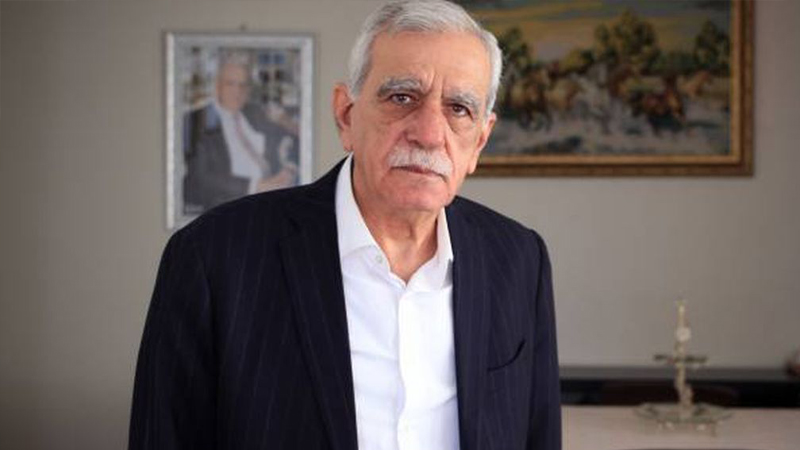The pro-Kurdish Peoples’ Democratic Party (HDP) is planning to field a veteran Kurdish politician as a presidential candidate for the 2023 elections if an opposition bloc of six parties nominates a candidate with a nationalist background, according to a media report.
Turkey will hold parliamentary and presidential elections in 2023. Although President Recep Tayyip Erdoğan, who is now serving his second term as head of state, will be the presidential candidate of the Public Alliance, set up by the ruling Justice and Development Party (AKP), the far-right Nationalist Movement Party (MHP) and the Grand Unity Party (BBP), the opposition bloc, known as the “Table of Six,” has not yet announced its candidate.
The Table of Six refers to the leaders of the Felicity Party (SP), the İYİ (Good) Party, the Future Party (GP), the Democrat Party (DP) and the Democracy and Progress Party (DEVA) in addition to main opposition Republican People’s Party (CHP) chairman Kemal Kılıçdaroğlu.
According to a report on the Gazete Durum news website, the HDP, which is not among the “Table of Six,” will put forward Kurdish politician Ahmet Türk, 80, as its presidential candidate if the opposition bloc does not field Kılıçdaroğlu but rather Ankara Mayor Mansur Yavaş, whose name is among the potential presidential candidates.
Yavaş, a former MHP politician, is disliked by most Kurds due to his nationalist background and anti-Kurdish discourse.
Türk was chairman of the now-closed pro-Kurdish party, the Democratic Society Congress, and former mayor of the southeastern province of Mardin.
The HDP played a crucial role in the victory of the CHP in İstanbul in the local elections of 2019 when the CHP’s candidate, Ekrem İmamoğlu, ended the years-long AKP rule in the city.
The ruling AKP, together with its ally, the far-right MHP, have long portrayed the HDP as the political front of the outlawed Kurdistan Workers’ Party (PKK), which is designated as a terrorist group by Turkey and much of the international community and has been waging an insurgency against the Turkish state since 1984 that has claimed tens of thousands of lives.
The party denies links to the PKK and says it is working to achieve a peaceful solution to Turkey’s Kurdish issue and is only coming under attack because of its strong opposition to President Erdoğan’s 20-year rule.
The political and legal assault on the HDP, which intensified after a truce between Kurdish militants and the AKP government broke down in 2015, grew even stronger after Erdoğan survived a coup attempt in July 2016 that was followed by a sweeping political crackdown.
The party currently faces a closure case on charges of “attempting to destroy the indivisibility between the state and the people.”
Hundreds of HDP politicians, including the party’s former co-chairs, are behind bars on terrorism charges, while most of the 65 HDP mayors elected in the predominantly Kurdish Southeast in 2019 have been replaced by government-appointed trustees.

